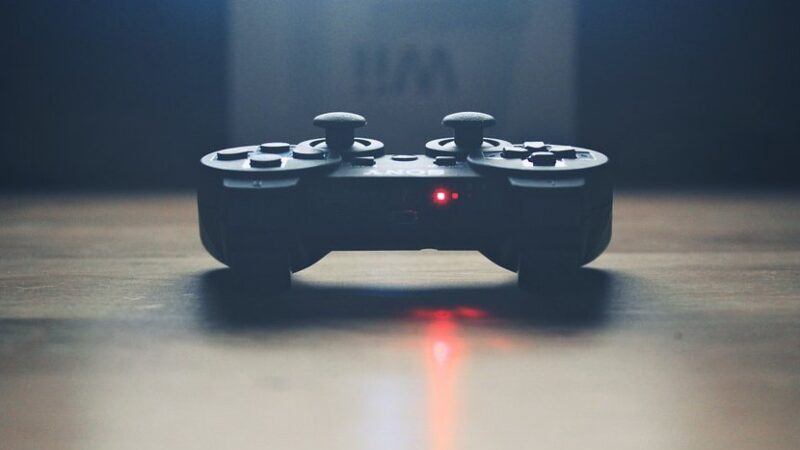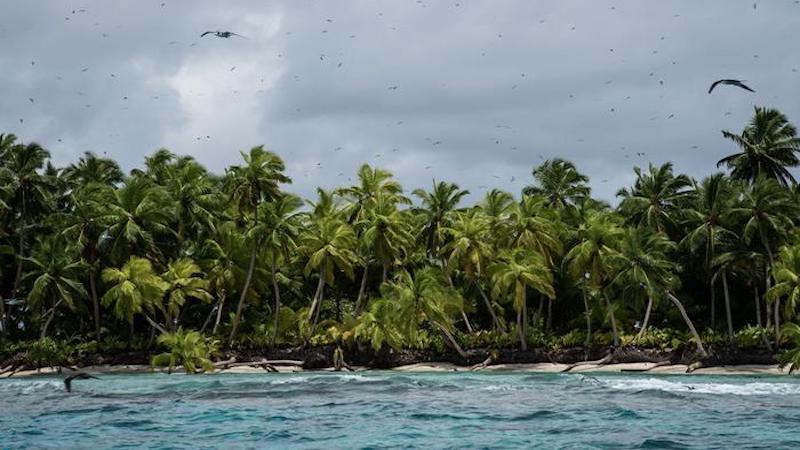#Armenia is already reaping positive benefits from deepening cooperation with the #West. This process is a strategic turn. We can rid ourselves of Russian colonialism and realise the potential of cooperation with the West. This is not an emotional speech or pathos but an… pic.twitter.com/vQ8rY2n6p1
— Robert Ananyan (@robananyan) June 18, 2024
Day: June 18, 2024

It’s one of the fastest growing industries globally, raking in millions for the best players and attracting a huge fanbase, but a new Australian study has revealed the dark side of professional video gaming: cyberbullying and sexual harassment.
Even though the esports industry is a diverse community, cyberbullying is rampant in this virtual world, and cis-gendered and trans-gendered women players are disproportionately more likely to be sexually harassed than men.
Despite women making up 46% of the world’s three billion video gamer players, according to a new paper published in Entertainment Computing, women who play professionally (16% of esports competitors and content creators) are the most vulnerable to cyberbullying and sexual harassment.
University of South Australia (UniSA) psychology PhD candidate Louise Trudgett-Klose and Dr Sarven McLinton authored the paper, surveying 145 videogame players from 14 countries, 96% of whom said they had been cyberbullied in the previous 12 months.
Almost half of the bullying (49%) came from co-workers (other players) and the other half from the public.
“There was a definite link between the level of professional gaming and the incidence of cyber bullying, and sexual harassment for women players,” says Trudgett-Klose. “The more professional a player becomes, the more they are exposed to hostile behaviour, which affects their mental health.”
Cyberbullying involves name calling, derogatory comments, excluding specific players and restricting access, verbal threats and manipulative tactics, whereas sexual harassment includes being sent explicit messages and images and unwanted sexual comments.
“It’s not just an isolated incident. The fact that 96% of players – professional or otherwise – experienced cyberbullying in the previous 12 months suggests that toxic behaviours are prevalent in the gaming community.”
Gaming professionals who attracted the most fame – characterised by having a large fan base and presence on platforms like Twitch and YouTube – were exposed to the worst levels of cyberbullying.
“It is important to note that playing video games itself is not the issue,” Dr McLinton says. “However, the culture around gaming is hyper masculine and very much targeted towards heterosexual men. Anyone who falls outside that group is more vulnerable.”
Most professional players are independent and not protected by an organisation, leaving them without a governing body to enforce safety and protection.
“New avenues need to be explored to better support emerging professionals in this contemporary era of gaming work, protect their mental health, and create a safer virtual environment for everyone,” Dr McLinton says.
The UniSA researchers are part of a new research group called HIGHER (Healthy Inclusive Gaming, Hobby & Esports Research) that aims to better understand players, performance, culture and workers in the burgeoning esports industry.
Their research includes all aspects of esports competition; mental health and wellbeing of players; the inclusion of esports in schools and the community; cyberbullying and online safety; gender and sexuality in gaming; the role of gaming in work/life balance; and how emerging technology such as AI impacts the esports industry.

Hundreds of thousands more breeding pairs of seabirds could return to remote island archipelagos if invasive rats were removed and native vegetation restored – a new paper finds.
In a first of its kind study, researchers also calculated that there are enough fish in the seas surrounding the remote tropical islands that were the focus of the research within hunting range of seabirds to support these restored populations.
This is an important factor that has not been considered in previous island restoration studies and could become a vital consideration to guide future island restoration projects around the world, researchers behind the study say.
The findings by an international team of marine scientists led by researchers at Lancaster University have been published today by the journal Conservation Biology.
“We know that invasive species, such as rats, have devastating impacts on native seabird populations – they eat the eggs, chicks and even sometimes adult birds,” said Dr Ruth Dunn of Lancaster University and lead author of the study.
“It’s been shown that restoration projects that remove invasive species, such as rats, are effective. However, when there are limited resources in planning island restoration projects it is also important to know if seabird populations are restored that there will be enough fish in the sea for them to hunt and eat – especially as threats such as over-fishing and climate change make fish populations more uncertain.
“Our study was the first to factor in this important consideration and encouragingly for the remote islands we studied we found that there is enough fish in the sea for restored populations of seabirds.”
The researchers calculated the energy requirements of restored seabird populations, and prey fish quantities using available data. The seas surrounding the remote Chagos Archipelago in the Indian Ocean, the focus of the study, include areas of nature reserves where fishing is restricted. These protected areas may have affected the availability of prey fish for restored seabird populations, the scientists say.
“We hope our findings will be an important case study to guide island restoration projects elsewhere, including potentially the consideration of marine protected areas that limit fishing as part of these projects,” said Dr Dunn.
The research team looked at three projected scenarios where invasive rats would be eradicated from 25 islands, and natural habitat, such as native forest and savannah, were restored to different degrees.
Their modelling shows that if rats were removed from these 25 islands that could result in populations of lesser noddies, sooty terns and red-footed boobies recovering to nearly 24,000 breeding pairs – an 18-fold increase.
If native vegetation was restored to half of the surface area of these islands then breeding pairs on these rat-eradicated islands could achieve 83,000 pairs. And if vegetation was restored to three quarters of these islands’ surface area then that could lead to more than 280,000 breeding pairs of lesser noddies, sooty terns and red-footed boobies.
The benefits are not limited to what can be seen on the islands. Previous studies by the research team have shown that seabirds play a critical role in cycling nutrients from the deep ocean onto islands, and then onto adjacent coral reefs surrounding the islands.
The seabirds’ droppings, known as guano, carry nitrogen and phosphorus, important nutrients that leach into the surrounding seas fertilising surrounding coral reef environments.
“Removing invasive predators is vitally important for seabirds to thrive in these tropical island environments, but we also know from previous studies that when we have more seabirds we see positive impacts for coral reefs in the seas surrounding tropical islands,” said Dr Dunn.
The researchers found that the increase in seabird numbers would equate to nitrogen input from seabird droppings increasing from 78 tonnes a year to 170 tonnes a year.
This would provide a huge boost to life under the waves with a 52 per cent increase in fish biomass on the reefs – that equates to around 50,000 tonnes more reef fish around the islands.
In addition, the scientists predict that under these restored conditions there would also be a significant increase in the number of grazing fish, such as parrotfish, doing important jobs such as eating algae and removing dead coral. These roles are critical in helping reefs recover from disturbances such as storms and bleaching events.
“These findings underscore the substantial role island restoration can have not just in bolstering vulnerable seabird populations, but also in enhancing the resilience of adjacent coral reefs to the impacts of climate change,” said Professor Nick Graham of Lancaster University, a co-author of the study.
The marine scientists behind the study say their findings are an important case study to show it is important to consider the wider context when planning resources for island restoration projects. By modelling the impacts of different levels of native vegetation restoration, and available levels of food in surrounding seas, restoration projects can help ensure the best returns for nature.
The research, which was funded by the Bertarelli Foundation, is detailed in the paper ‘Island restoration to rebuild seabird populations and amplify coral reef functioning’.
NPR News: 06-18-2024 6PM EDT
Ex-CIA deputy director sounds the alarm about terror threat posed by open border https://t.co/YOAW008nM3 #FoxNews
— Michael Smith (@MickWSmith) June 18, 2024
